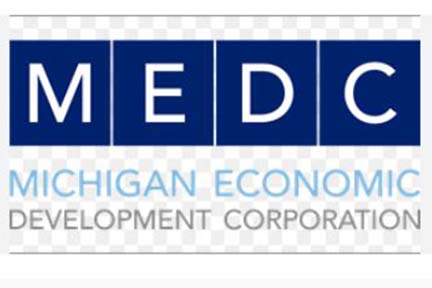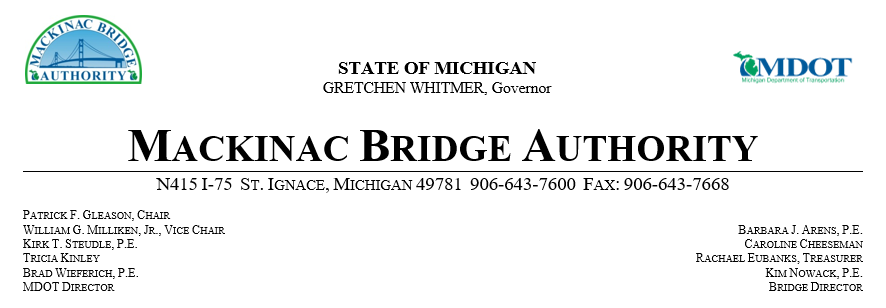ICYMI: Michigan Wins $452 Million Total Investment, Creating or Retaining Up to 2,107 Jobs
LANSING, Mich. – Governor Gretchen Whitmer joined the Michigan Economic Development Corporation in announcing Michigan Strategic Fund approval of a wide range of projects, including two new manufacturing facilities by innovative glass products manufacturer LuxWall, two new facilities by electric truck manufacturer Bollinger Motors, expansions by Michigan companies Magna and Vantage Plastics, a new spec building in Romulus, placemaking projects in Battle Creek and Pontiac, and other actions that will further strengthen Michigan’s economy and startup ecosystem. The projects approved today represent a total capital investment of nearly $452 million across Michigan.
“We are strengthening Michigan’s economy by bringing good jobs to Michigan residents, expanding on our leadership in mobility and next generation manufacturing, building on our inventory of investment-ready facilities, supporting sustainability efforts, creating vibrant communities, and investing in initiatives that will ensure long-term economic opportunity for businesses in the state,” said Governor Whitmer. “Let’s keep competing to win projects that bring good-paying, high-skill jobs home so everyone, in any community, can ‘make it’ in Michigan. Together, we will continue sending a clear message that Michigan is open for business and building on our momentum.”
LuxWall Creating 453 High-Tech Jobs
LuxWall, Inc., founded in 2016 and headquartered in Ypsilanti with 49 employees, designs and develops, next generation vacuum insulated glass. The company’s Enthermal products have the potential to disrupt the traditional glass industry as its products are very thin, yet have superior insulative properties and have significantly better performance of 45 percent greater heat retention in the winter and 60 percent greater cooling retention in the summer as compared to conventional building glass. According to the International Energy Agency, buildings account for 36 percent of global energy consumption and are responsible for 39 percent of global CO2 emissions.
LuxWall has received significant investments from Bill Gates-founded Breakthrough Energy Ventures, Prelude Ventures, Baruch Future Ventures, 2150, and Khosla Ventures, and is preparing for high-volume manufacturing of its products.
LuxWall plans to construct the world’s first high-volume vacuum-insulated glass production facilities that will include two factories that house manufacturing, quality control, office space, and laboratories. The company plans to establish the first operations in two existing, vacant facilities in Litchfield, where it will achieve scale and validate its ability to manufacture in commercial volumes. The company is currently evaluating sites in Detroit for its second facility, where it will triple production capacity. The two sites will manufacture energy-efficient windows that will be sold to residential and commercial customers in the U.S., Canada, and Europe.
“Today is a huge step for LuxWall as we ready our company for the commercialization phase by meaningfully expanding our footprint in Michigan to now include major manufacturing plants in Litchfield and our future Detroit site,” Scott Thomsen, CEO and co-founder of LuxWall. “We are grateful for the strong business and economic support we have received from the State of Michigan, MEDC, DRP, City of Ypsilanti, Washtenaw County, Hillsdale County, and the City of Detroit as we expand the company. We are committed to creating high quality, well-paying jobs, and collaborating with Michigan Works and other agencies to develop best in class training programs to ensure we hire, develop and promote Michigan talent.”
The project is expected to generate a total capital investment of $165.6 million and create 453 jobs with the support of a $6 million Michigan Business Development Program performance-based grant. LuxWall chose Michigan for the project over competing sites in neighboring states because of Michigan’s pro-business environment, aggressive sustainability goals and its goal of ensuring that its investments stay in its home state of Michigan.
The project will bring a significant number of high-wage, high-tech jobs to Michigan and further boost the state’s sustainability efforts. Enthermal will change the built environment in the same way wind and solar are changing energy production. With mass adoption, this glass innovation can reduce global carbon emissions by 14 percent. In addition, it will strengthen and secure the company’s future investment in the state going forward.
Litchfield Township anticipates approval of a property tax abatement in support of the project. For information on careers with LuxWall, visit https://www.luxwall.com/careers/.
“LuxWall’s success and rapid expansion is further proof that the Detroit Region is a premier innovation and R & D hub across many emerging industries, including clean energy,” said Maureen Donohue Krauss, president and CEO of the Detroit Regional Partnership.
Bollinger Motors Creating 237 High-Wage Jobs in Livonia and Oak Park
Bollinger Motors, Inc., headquartered in the city of Oak Park, is a commercial electric truck manufacturer. The company was originally launched in New York in 2015, where it manufactured and revealed its first working electric truck prototype. The company received an overwhelming response to its ground-up truck design and moved to Michigan, where it currently employs approximately 70 Michigan residents.
Bollinger plans to begin production of its first vehicle in the first half of 2024 and expand at a third-party manufacturing operation in Livonia, where it will add machinery and equipment. The company also plans to renovate its Oak Park headquarters in order to accommodate the additional job growth.
The project is expected to generate a total capital investment of $44 million and create 237 high-wage jobs, supported by a $3 million Michigan Business Development Program performance-based grant. The company chose Michigan for the project over a competing site in Indiana due to access to key relationships, the talented workforce, and Michigan’s commitment to the automotive and mobility industries.
“Bollinger Motors is poised for growth and we’re proud to be focused on expanding our company’s operations as we approach start-of-production,” said Robert Bollinger, founder and CEO of Bollinger Motors. “I appreciate Michigan’s faith in our plan and our product as we seek to electrify America’s fleets.”
The project builds on the state’s work to position itself as the global leader in the future of mobility and vehicle electrification and will further solidify the company’s presence and future investment in the state. In 2021, Bollinger partnered with Michigan State University, Qnergy Co., and Ingham County on a project to develop a mobile waste-to-electricity solution to allow small- and medium-scale farm operations to convert organic wastes into electricity for electric vehicles or farm equipment.
Bollinger supports personal growth and offers a variety of training opportunities to its employees, and utilizes Michigan Works! to reach local talent in disadvantaged areas and underrepresented employees.
“Bollinger Motors is an exciting company that chose Oakland County and Southeast Michigan as the best location for it to emerge as a major EV innovator, and that decision is paying off,” said Maureen Donohue Krauss, president and CEO of the Detroit Regional Partnership. “Our region has the talented workforce, manufacturing know-how, and mobility industry assets that are helping define EV mobility with companies like Bollinger leading the way.”
Oakland County Michigan Works! is supporting the project through talent recruitment for the newly created positions, and the Detroit Regional Partnership is assisting the company with talent and promotional support. For information on careers with Bollinger, visit https://bollingermotors.com/careers/.
Magna Creating 500 New Jobs in Auburn Hills
Magna is a mobility technology company and one of the world’s largest suppliers in the automotive space with a global, entrepreneurial-minded team of over 171,000 employees and an organizational structure designed to innovate like a startup. With 65+ years of expertise, and a systems approach to design, engineering and manufacturing that touches nearly every aspect of the vehicle, the company is positioned to support advancing mobility in a transforming industry. Michigan is Magna’s U.S. corporate home and the state with their largest U.S. footprint. Magna operates 30 facilities in Michigan and employs more than 12,000 Michiganders.
Magna confirmed it had secured business from GM to supply seat assemblies for certain future EV products. The company plans to construct a new 280,000-square-foot facility in the city of Auburn Hills. The project is expected to generate a total capital investment over $100 million and create over 500 jobs with the support of a $4.25 million Michigan Business Development Program performance-based grant. The company chose Michigan for the project over competing sites.
The project builds on the state’s work to position itself as the global leader in the future of mobility and vehicle electrification. The proposed project will also impact the local region with significant redevelopment of the former Oakland County animal shelter that closed in 2017, and will further solidify the company’s presence and future business in the state.
“The innovative work that Magna is doing to develop high-tech seating for today’s vehicles is exciting and will make life so much easier for families in the future,” said Oakland County Executive Dave Coulter. “We welcome Magna’s decision to expand its footprint in Auburn Hills, Oakland County and Michigan to develop the cutting-edge technologies that will transform our cars, trucks, SUVs and vans for generations to come. This expansion in Auburn Hills is further proof that Oakland County and Michigan continue to be a premier spot for the creative and groundbreaking work being done by the automotive industry.”
The city of Auburn Hills has approved a 50-percent property tax abatement valued at approximately $1 million in support of the project. The MEDC also authorized a State Education Tax abatement valued at $1.1 million to be used in conjunction with the locally approved abatement. For information on careers with Magna, visit https://www.magna.com/company/careers.
“We are thrilled that Magna has chosen Auburn Hills for their next strategic investment,” said Auburn Hills Mayor Kevin R. McDaniel. “There is a significant request for land in Auburn Hills and Magna, along with General Development, will redevelop the former Oakland County animal shelter into a facility that will help support the future of mobility. Magna’s innovation and advanced mobility technology continues to strengthen the EV footprint in Auburn Hills. This reinvestment in our community is very much appreciated and we look forward to continuing to support Magna’s success into the future.”
Vantage Plastics Investing $31 Million and Creating 93 Jobs in Bangor Township
Vantage Plastics, headquartered in Standish, is a custom thermoformer with full in-house design, prototyping, and tool build capabilities, serving customers in the automotive and consumer goods industries. The company currently employs 318 Michiganders.
Vantage Plastics is experiencing significant growth, especially in the automotive supply chain, and plans to expand into an existing facility in Bangor Township, where it will add manufacturing and warehousing space. The project is expected to result in a total capital investment of $30.9 million and create 93 jobs with the support of a $1.2 million Michigan Business Development Program performance-based grant. The company chose Michigan for the project over a competing site in Nevada due to existing relationships and customers it currently has in the state.
“Since its inception, Vantage Plastics has experienced steady growth,” said Paul Aultman, president of Vantage Plastics. “As a family-based company, it’s an honor to be able to expand our business in our home state. It’s rewarding to see the business we began in a 45,000 square foot building, 27 years ago expanding into a second facility partnering with cutting edge industries to supply them with products. We feel blessed and we appreciate the support we have received from all of the partners who have helped make this project a reality.”
The project supports the state’s efforts to be the global leader in the future of mobility and vehicle electrification. Vantage Plastics offers full benefits to its employees and encourages employee growth and advancement across functions. The project will also overhaul a long-vacant building in the community, and will further solidify the company’s presence and future investment in the state.
“The expansion of Vantage Plastics in beautiful Bangor Township is monumental for our community,” said Glenn Rowley, Bangor Township Supervisor. “The company is rehabilitating a 325,000 square foot obsolete property that has sat vacant for some time now. We’re looking forward to seeing the impact Vantage Plastics will have on this industrial area and the potential it will create for future development of the area.”
“Vantage Plastics is a leader in their industry and because of that fact they have had more than one opportunity to expand their business elsewhere,” said Trevor Keyes, President & CEO of Bay Future, Inc. “This project was no exception. Their decision to grow their business here in the region, and specifically in Bay County, is a testament to the resources we have here and their commitment to their employees and this community. We are grateful to Vantage Plastics for their investment and for their commitment to our community and to the state of Michigan.”
Romulus Distribution Center Building New Facility in Romulus Holding Up to 625 Jobs
The Romulus Distribution Center, LLC plans to redevelop a former landfill consisting of six parcels in the city of Romulus into two high-bay, multi-tenant industrial buildings with parking and stormwater detention. The buildings have the option to be combined into one larger building if requested by a tenant before construction begins. The project is expected to result in a total capital investment of $75 million, and when fully occupied, is expected to create up to 625 new jobs.
In addition to addressing the blight and contamination at the site, the activation of more than 1 million square feet of industrial space is critical in addressing the shortage of space in the city of Romulus, metro Detroit, and the state. The development will be the final phase of the redevelopment of the former landfill property and is expected to attract additional companies to Romulus, resulting in the continued expansion of the area and creation of additional jobs for the area.
Market analysis has repeatedly shown that large, move-in-ready sites are in demand. Supporting this type of property remains vital to retaining existing companies in the state as they grow and offers opportunities to attract new companies here to Michigan.
The City of Romulus Brownfield Redevelopment Authority today received MSF approval of $4,203,054 in state tax capture for the reimbursement of brownfield activities at the site. The city of Romulus is supporting the project through the local portion of the brownfield plan, valued at $6.4 million.
“We are excited to expand on our 30+ year partnership with the City of Romulus that initially started with Romulus Business Center in 1993,” said Ashley Capital Vice President of Development Kyle Morton. “The support for Romulus Distribution Center from the State of Michigan, City of Romulus, and Wayne County is integral for the redevelopment of the former unlicensed landfills into two Class A light industrial facilities.”
The development entity, Romulus Distribution Center 2, is an affiliate of Ashley Capital and was created for the development of the site in the city of Romulus. Established in 1984,












